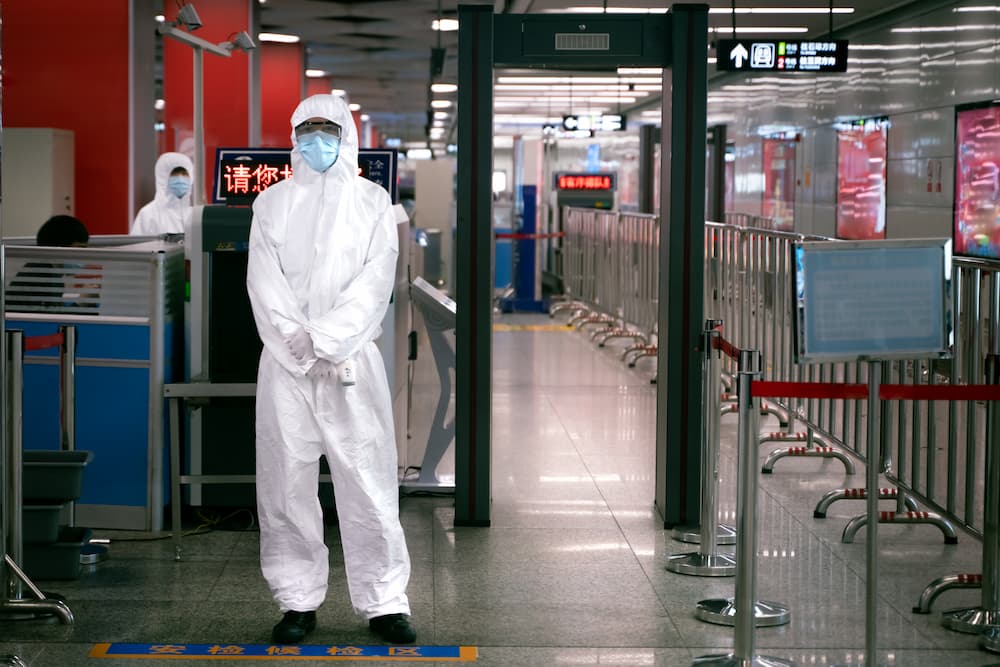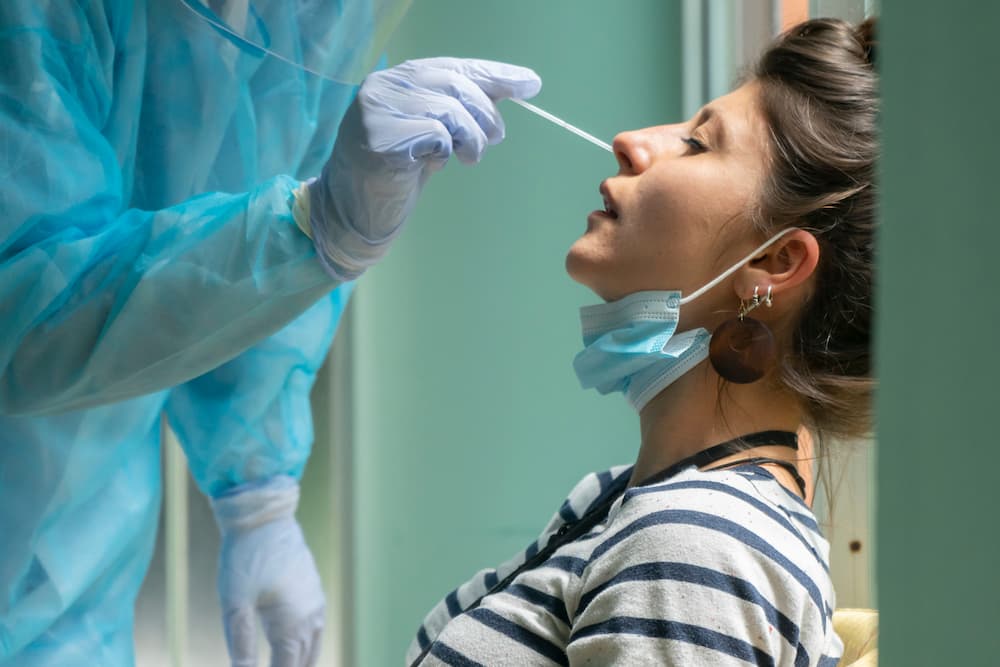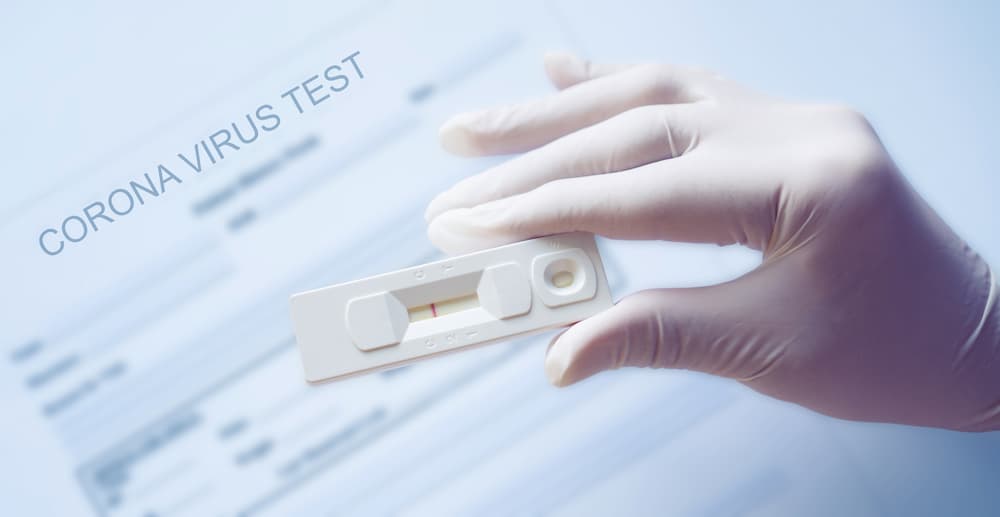Mexico’s minimal rules and restrictions during COVID-19 made it a favorite spot for travelers. More importantly, the Mexican government has lifted most travel restrictions and testing requirements as the world recovers from COVID-19.
Although there is no testing or vaccination requirement for U.S. travelers entering Mexico, authorities at airports and entry points still conduct health checks. If you’ve been in contact with an infected person, COVID symptoms could show up anytime— for example, while descending a plane.
Unfortunately, health officials may require you to undertake further testing, which could significantly delay your journey. In other instances, you may be turned back to the United States, a massive blow to your travel plans.
As such, it is essential to understand your COVID status as part of your travel plans. If you want to conduct a COVID test in anticipation of your trip to Mexico, consider visiting a trusted and reputable urgent care center in Newport Beach.
Here’s what you need to know.
Do You Need a COVID Test to Fly to Mexico?
You do not need a negative COVID test to enter Mexico.
However, health screening procedures are in place at airports and other entry points. Temperature check is one of the health screening measures at points of entry. Anyone who exhibits COVID symptoms may be subjected to additional health screening/ and or quarantine.
Such visitors may experience significant delays and possibly be returned to the United States or quarantined in Mexico.
Requirements to Enter Mexico from the U.S.
Mexico doesn’t require U.S. citizens to provide documentation of negative COVID-19 results to enter Mexico. In addition, Mexico doesn’t require travelers to be vaccinated. However, you may be subjected to health screening at the airport if you display COVID symptoms.
Requirements for Returning to the U.S. from Mexico
As of June 12, 2023, U.S Citizens returning to the U.S. from Mexico no longer need a negative COVID test at the entry point. However, if you are not a U.S. citizen or are using an immigrant visa, you must show proof of vaccination to fly into the United States.
Current Travel Restrictions for Mexico
Mexico is open to arrivals from all countries. There are also no entry restrictions or obligation to carry a COVID test or quarantine.
Symptoms
People with COVID display a variety of symptoms ranging from mild to severe. If you’re infected with COVID-19, symptoms will likely appear 2-14 days after exposure. The window between exposure and symptom display is called the incubation period.
Although you don’t have symptoms, you can still spread the virus—presymptomatic transmission.
COVID-19 symptoms include:
- A sore throat
- Shortness of breath
- Runny nose
- Chest pain
- Muscle aches
- A new and continuous cough, which may include 3 or more coughing episodes in the last 24 hours
- Loss of appetite
- Diarrhea
- Rash
- Nausea and vomiting
- A loss or change of taste of smell or taste
- Fatigue
COVID-19 symptoms are familiar to those of a cold or flu. Fortunately, most people recover within the first few days or weeks after displaying the signs. However, some people get severe COVID, with their symptoms lasting longer.
When to See a Doctor
If you have symptoms of COVID-19 or have been in contact with someone diagnosed with COVID, contact a healthcare provider immediately. A physician will most likely recommend you take a COVID-19 test.
If you have the following emergency symptoms, call 911 or rush to the nearest emergency center:
- Trouble breathing
- Inability to stay awake
- Sudden or constant chest pressure
- If you faint, collapse, or have a seizure for the first time
- Pale, gray, or blue-colored lips, skin, or nail beds—depending on your skin tone.
- New confusion.
Causes
A COVID-19 infection is caused by acute respiratory syndrome coronavirus 2, the SARS-CoV-2 virus. The COVID-19 virus spreads quickly among people with close contact. The virus spreads through respiratory droplets released when someone coughs, sneezes, breathes, sings, or talks.
Once the respiratory droplets are released, they may land in the mouth, nose, or eyes of someone nearby. Alternatively, you can get a Covid-19 infection if exposed to tiny droplets or aerosols that stay in the air for several minutes or hours.
You’re likely to get COVID-19 if you’re in close contact with someone who has COVID and has symptoms. The risk of infection also increases if you’re near an infected person in an indoor space with poor ventilation.
Total Cases
Mexico recorded 7.8 million Covid-9 cases with approximately 300,000 deaths. The current infection rate stands as low as three infections per week. In addition, at least 78% of the population has received at least one Covid-19 vaccination dose.
What Will Happen if I Test Positive for Covid-19?
If you test positive at the airport, you may be required to undergo quarantine before being allowed to proceed with your travel plans. Alternatively, the Mexican authorities can order you back into the United States.
That said, it’s advisable to undergo a covid test before embarking on a journey to Mexico.
When to Get Tested for COVID
- If you have COVID-19 symptoms, get tested immediately.
- If you don’t have symptoms but have been exposed to COVID-19, wait until five days after exposure before taking a test.
- You may also need to test when you don’t have symptoms or recent exposure but expect to travel, attend an event, or visit a high-risk area. Test as close as possible to the day of travel(1-2 days).
Who Should Get Tested
- People with mild symptoms
- People with severe symptoms
- People with no symptoms
Checklist and Resources for International Travelers
Here are a few resources to enhance your international travel experience:
U.S Department of State: Mexico travel advisory
U.S Department of State: International Travel Information
Carry the following documents:
- Copies of your travel documents and passports
- Health Insurance documents and card
- Copies of your prescription— including medication, medical supplies, and glasses
- A contact card with details such as a street address, email address, and phone number of close family members.
- Any form of documentation for accommodation at your destination
- Information of U.S Embassy and consulate in the destination country
- Hospitals, clinics, and emergency services at your travel destination
Restrictions on Items to Carry: Check the Transport and Security Administration site on allowed and prohibited items, including medicines, in the airplane.
Some items are prohibited in other countries, so consider checking the Customs and Import Restriction section of the U.S. Department of State Tips for Traveling Abroad.
Stay Informed
Types of COVID Tests
There are three types of COVID-19 tests; antigen, molecular, and antibody. Molecular and antigen tests check whether a patient has a current COVID infection. On the other hand, an antibody test is used to check if you have previously contracted COVID-19.
Molecular Test
A molecular test is called Nucleic Acid Amplification Test(NAAT) or reverse transcription polymerase chain reaction (RT-PCR) test. The PCR test or molecular test uses specific probes to detect the presence of genetic material in the SARS-CoV-2 virus that causes COVID-19.
The molecular test is considered the ‘gold standard’ for testing COVID-19 because it has a high accuracy rate of up to 96%. You can get the molecular test results as quickly as 15-45 minutes for point-of-care tests and between 1-3 days when samples are sent to the lab.
Although a molecular test has high accuracy levels, you can get a false negative result for the following reasons:
- Testing Too Early: It takes up to five days after exposure before the virus in the genetic material builds up to detectable levels. You may, therefore, get a false negative if you test during this window.
- Testing Too Late: Viral genetic material begins to decline after one week in the upper respiratory tract, which explains a false negative if you test too late.
Antigen Test
An antigen test, called at-home or rapid test, produces results within 15-30 minutes. However, antigen tests are less accurate than molecular tests making them prone to produce false negative results. They are also likely to miss an active infection.
However, a positive antigen result is accurate and reliable. Due to the low accuracy levels of antigen tests, a molecular test is usually needed to confirm a negative test.
Alternatively, FDA recommends a repeat antigen test using the following guidelines:
- If you have symptoms and your antigen test is negative, take another antigen test after 48 hours.
- If you don’t have symptoms and your antigen result is negative, take another antigen test after 48 hours. If your second result is negative, wait another 48 hours and take another test.
You can take an antigen test anywhere without going to a specific testing site.
Antibody Test
Antibody tests check whether a patient has a previous COVID-19 infection. It’s also a serology test that looks for antibodies to the SARS-CoV-2 virus. Antibodies are proteins the immune system produces to fight infections or invaders, including viruses.
While the antibody test also checks for a previous COVID infection, it also shows an immune response following an infection. An antibody test is not used to detect a current COVID infection because it takes up to three after infection for the body to develop antibodies.
The accuracy level of antibody tests increases with time; at three weeks, there’s a 90% chance of detecting the antibodies. You can get the results of an antibody test within the same day for some point-of-care facilities. It may take up to three days if the sample is sent to the lab for analysis.
Interpreting Covid Results
Implications of a Positive COVID Test Result.
Any positive result means the test detected the virus, and you’ve recently had an infection.
You should therefore take the following precautions:
- Isolate and take measures such as wearing a well-constructed and fitted mask or respirator
- Tell anyone you’ve recently had contact with that you’ve been exposed
- Keep monitoring your symptoms; if you develop emergency symptoms, seek immediate medical attention
- Contact an urgent care center about the treatment options that may be available to you.
- Start treatment right away to improve its efficiency
Implications of a Negative COVID Result.
A negative Covid result means the test did not detect the virus but doesn’t rule out an infection.
Here’s what you should know about a negative Covid result:
- If you have symptoms, take everyday preventative measures to reduce the risk of spreading the illness to others.
- Contact a physician about your test results if your symptoms worsen
- If you still have symptoms, you may need a further diagnosis of other illnesses, such as flu.
- If you don’t have symptoms but have been exposed, continue taking recommended steps after exposure to COVID-19.
- If you do not have symptoms and haven’t been exposed to the virus, you may return to normal activities, including your travel plans.
Understanding Your COVID-19 Risk
COVID-19 can affect anyone resulting in mild to severe symptoms. However, some people are at a higher risk of getting severe COVID, including hospitalization.
Factors that increase your risk of getting very sick from Covid include:
- Age: People 50 years and above are at higher risk of getting a severe form of Covid than younger people. As such, they’ll likely require hospitalization, a ventilator, and intensive care, or they could die.
- People With a Weakened Immune System: If you have a weakened immune due to medication or a chronic condition, you’ll likely get very ill.
- Underlying Health Conditions: People with underlying health conditions such as asthma, diabetes, or heart disease appear more vulnerable to severe Covid-19.
Try Newport Urgent Care & Occupational Medicine COVID-19 Testing Services
Although Mexico has no COVID-related testing and vaccination requirements, airport and entry point officials are cautious of potential cases. If you unknowingly travel with COVID and symptoms show up in transit, you’ll likely experience travel delay or cancellation.
With that in mind, it is advisable to travel when you’re fully aware of your COVID status to make an informed choice and protect those around you.
At Newport Urgent Care & Occupational Medicine, we offer various testing services, including COVID tests, at an affordable price.
Contact us online or call us at 949.828.0613 to book an appointment.






